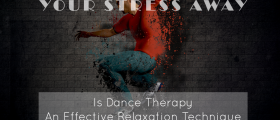The first time it happens, I was shopping at a mall with my girlfriend. We were outside the hair dresser and everything started spinning, my heart started beating in my chest, and I felt like I was going to die. I passed it off as being due to overly hot weather but then it happened again, and again even as the seasons changed.
I am now convinced that I am dealing with anxiety or panic attacks. Every time it happens, my heart beats really fast (palpitations), and I am short of breath. It really feels like I am going to die.
Is this something that can cause long lasting health damage and what can I do about it?
Loading...
As for whether anxiety and panic attacks damage your health, yes they can. Anxiety, when it becomes chronic, increases your risk of respiratory illness, gastrointestinal illness, and heart disease. And chronic anxiety also means these health problems are harder to treat. I'd strongly advise you to look for help now. Anxiety can be treated. With medication and therapy, along with self-help relaxation techniques for anxiety, you can beat this thing and feel better again, without the long term risks mentioned above. It's exactly because anxiety can impact your physical health that you shouldn't become one of those people who doesn't get treatment.
Loading...
I would look at some crucial things here. Are your heart palpitations accompanied by other symptoms? If you experience shortness of breath, dizziness, blurred vision or chest pain, or all of those? If so, the palpitations you are having could be the sign of a more serious underlying medical problem rather than panic attacks, something that is possible even in people who have already been diagnosed with panic disorder.
Even if you are "only" having panic attacks, you need help, mate. There are medications that could help reduce your symptoms of anxiety real fast. Please look into them because they can really improve your quality of life. You obviously want them to end.
Loading...
I have heard it said that 94% of all illnesses are worse when you have stress. In that sense, anxiety attacks, which obviously involve large amounts of stress, are indeed damaging to your physical health. Even if they weren't, your mental health is suffering. No person should have to live with anxiety for long stretches of time.
Treatments you can look into include but are not limited to:
- Antidepressants
- Benzodiazepines
- Therapy, including cognitive behavioral therapy and interpersonal therapy. This can be done alone or in a group.
- Natural remedies for anxiety disorders like valerian and St John's wort.
- Relaxation techniques for anxiety like exercise, breathing exercises, meditation, yoga, dance, and massage.
Loading...
I'm 33 and generally in good health. I would think I am too young to have heart problems! I do get chest pains, which I think is the palpitations themselves, and shortness of breath as well. I think those are all related to panic attacks though and I can't see what else could possibly be wrong.
Loading...
Over the longer term, you will want to look into mindfulness, yoga, and regular exercise. I have heard that magnesium supplements can also reduce heart palpitations. I am not sure if that works for heart palpitations caused by anxiety though.
Loading...
Considering what you have written, I would not think your heart palpitations are caused by something other than panic attacks, though there is never any harm in asking your doctor about that. What I said in my last post, I meant that having anxiety means that everything else to do with your health is just that much worse as well, in the long run, which means you need to take it seriously and not treat it as "oh, just something I get sometimes".
Insane amounts of people with anxiety disorders don't see doctors about their symptoms. Just don't be one of them.
Loading...
Loading...
This is why I would suggest a thorough medical checkup to address the heart palpitations as well as your anxiety symptoms. Once you know where you are at, your anxiety and palpitations can then be addressed with a treatment tailored to your diagnosis.
